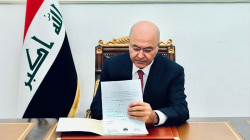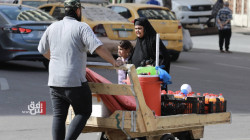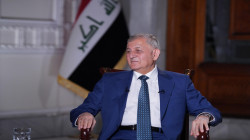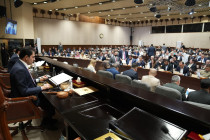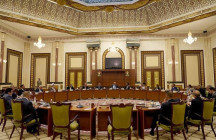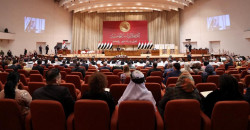Iraq passes law criminalizing same-sex relationships amid global criticism
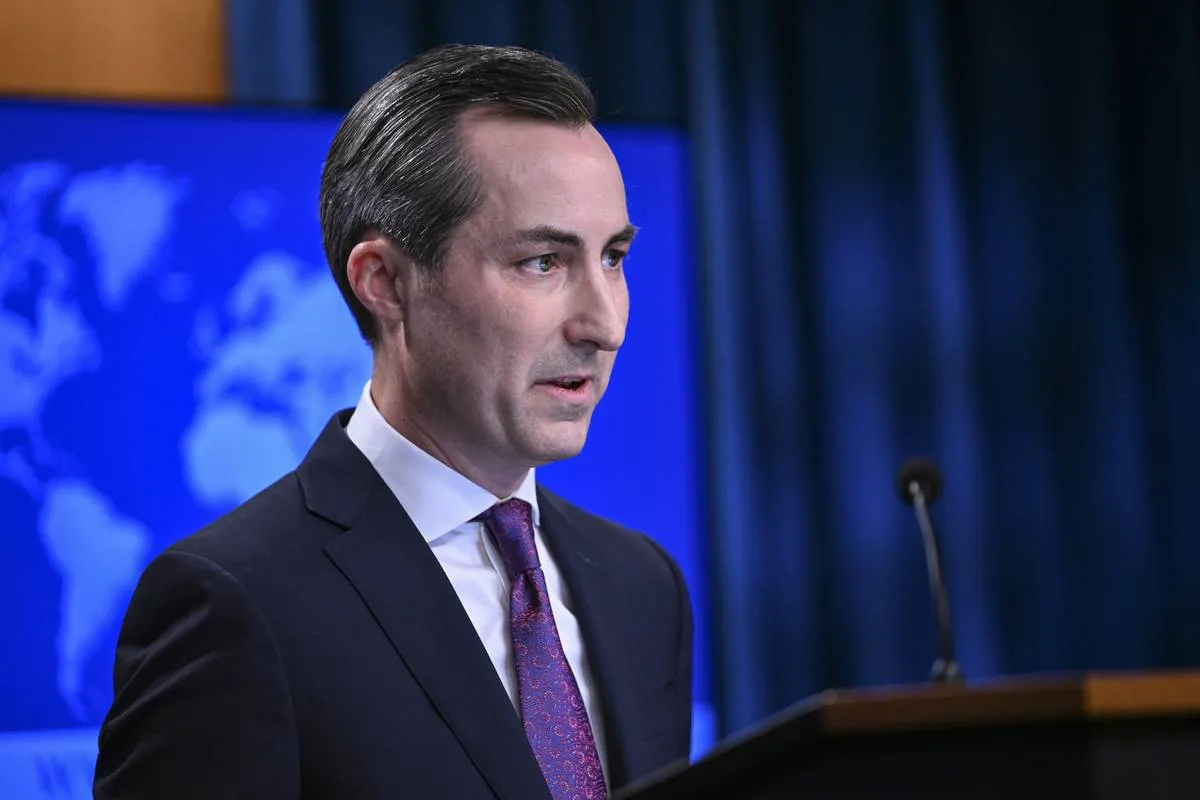
Shafaq News/ On Saturday, Iraq's Parliament enacted a law that criminalizes same-sex relationships and prostitution, carrying a maximum prison sentence of 15 years. The legislation, purportedly designed to uphold religious values, has drawn condemnation from Washington and rights advocates who view it as the latest assault on the LGBT community in Iraq.
Iraq's Controversial Law
The Law on Combating Prostitution and Homosexuality, backed by the largest coalition in the Iraqi Parliament, the Coordination Framework, criminalizes same-sex relationships. Additionally, it stipulates a minimum of seven years' imprisonment for those promoting homosexuality or prostitution.
The initial version of the bill included the death penalty for same-sex acts.
The Law prescribes imprisonment ranging from one to three years for individuals changing their "biological gender" or presenting themselves in an effeminate manner.
"Individuals undergoing sex-reassignment surgery, along with the doctors or surgeons performing the procedure, will be subject to one to three years in jail under the new law." However, the bill makes an exception for cases of medical intervention aimed at "treating birth defects to affirm the sex of the individual."
"The amendment was made under human nature and the natural order created by God Almighty, preserving the Iraqi society from moral decay and the calls for sexual deviance that have spread worldwide due to the absence of deterrent punishment in Iraqi legislation for acts of homosexuality and those who promote them." A readout by the Parliament said.
The Law, approved by Parliament, would come into effect after being published in the Iraqi Official Gazette.
Iraq's Firm Stance
Major Iraqi parties of Shiite, Sunni, and Kurdish entities intensified their criticism of LGBT rights, and a rainbow-coloured flag representing the LGBT community was often burned in protests, both in the ruling and opposition camps, last year.
In 2022, the influential Iraqi cleric Muqtada Al-Sadr ended a period of relative silence following his withdrawal from politics by launching an anti-LGBTQ campaign.
Al-Sadr called on "believing men and women to unite all over the world to combat the LGBTQ community," emphasizing the need to do so "not with violence, killing, or threats, but with education and awareness, using logic and ethical methods."
In 2023, a court in the Kurdistan region ordered the closure of Rasan Organization due to "its activities in the field of homosexuality."
Rasan is the sole human rights organization openly advocating for lesbian, gay, bisexual, and transgender (LGBT) rights in the Kurdistan Region.
Regarding the new Law, Independent MP Amir Al-Maamouri, who advanced it, told Shafaq News agency that "the parliament amended this law that criminalizes promoting or committing same-sex relationships," noting that "the law will contribute to building a sound society in line with Iraqi customs."
Member of the Parliamentary Legal Committee Raad Al-Maliki said during a press conference that "the parliament today voted on amending the law combating prostitution, which included many new provisions, including punishing 'imitating women and biological changes, promoting sexual acts, and banning organizations that promote prostitution and sexual deviance.'"
"The law serves as a preventive measure to protect society from such acts," lawmaker Raed al-Maliki.
For his part, MP Hassan Salem said during the same conference, "The law is considered important, and we reject tampering with Islam and society," adding that "passing the law is a blow to the greatest evil, which sought to spread sexual deviance in Iraqi society," according to his expression.
"Through this vote, we have firmly closed the chapter on homosexuality, leaving no room for reversal. We have silenced those who promote it and facilitate its propagation, thereby safeguarding our values and the foundational principles of our society rooted in our righteous religion," stated MP Murtada al-Saadi.
No Iraqi deputies have criticized the Law so far. However, legal expert Ali Al-Tamimi criticized the amendments, stating they seemed unclear.
In a social media post, Al-Tamimi pointed out that the Law's definitions were" concise and lacked elaboration, leaving room for interpretation in its application."
He questioned whether "the definition of homosexuality in the Law solely includes men resembling women or also encompasses masculine women—an aspect left ambiguous."
"What constitutes resemblance to women—is it through clothing, makeup, or other factors?"
"Article 3 of the Law, which prohibits all forms of homosexuality, lacked definition, leaving uncertainties about whether it encompasses lesbianism."
Regarding organizations promoting homosexuality, Al-Tamimi questioned how they obtained approvals to operate and whether the Law entails their closure or punishment for their leaders—"a matter the Law did not clarify, necessitating specification under the Law governing their establishment."
Al-Tamimi also raised concerns about the Law granting the Media Commission and Ministry of Communications authority to take legal action to prevent promotion, given the absence of a specific law on cybercrimes.
Additionally, Al-Tamimi highlighted the Law's penalty for wife-swapping, seeking clarification on whether it includes both husbands and wives—a detail the Law failed to address.
Comparatively, Al-Tamimi noted that the previous law No. 8 of 1988 penalized prostitution with a maximum two-year imprisonment in government institutions, indicating a reformist stance. However, the amended Law imposes a seven-year prison term without specifying institutions.
International Outcry
The new Law faced a wave of criticism from the United States and human rights organizations; however, no Iraqi voices were heard against it.
Washington expressed concern over the Law, viewing it as a threat to human rights and freedoms.
"The United States is deeply concerned by the Iraqi Council of Representatives' passage of an amendment to existing legislation, officially called the Anti-Prostitution and Homosexuality Law, which threatens constitutionally protected human rights and fundamental freedoms. The Law bans same-sex relations with steep fines and imprisonment and punishes those who "promote homosexuality." Limiting the rights of certain individuals in a society undermines the rights of all." a State Department statement said.
The US said this Law can be used to "hamper free-speech and expression and inhibit the operations of NGOs across Iraq." And also "weakens Iraq's ability to diversify its economy and attract foreign investment."
"This legislation is inconsistent with these values and undermines the government's political and economic reform efforts." The US Department of Stated concluded.
In turn, AFP news agency quoted Amnesty International's Iraq Researcher Razaw Salihy as saying, "Iraq has effectively codified in law the discrimination and violence members of the LGBTI community have been subjected to with absolute impunity for years"
"The Iraqi parliament's passage of the anti-LGBT law rubber-stamps Iraq's appalling record of rights violations against LGBTQ people and is a serious blow to fundamental human rights," Rasha Younes, deputy director of the LGBTQ rights program at Human Rights Watch, told Reuters.
"Iraq has effectively codified in law the discrimination and violence members of the LGBTI community have been subjected to with absolute impunity for years," said Amnesty International's Iraq researcher Razaw Salihy.
In 2022, Human Rights Watch, in collaboration with the Iraqi LGBT rights organization IraQueer, has documented "violations against the LGBTQ community in Iraq." This includes eight cases of abductions, eight attempted murders, four extrajudicial killings, twenty-seven instances of sexual violence, including gang rape, forty-five threats of rape and murder, and forty-two incidents of online harassment by individuals claiming affiliation with armed groups.
In thirty-nine cases, victims were able to identify the armed group responsible for the attacks against them. HRW said at that time.
Notably, more than 60 countries criminalize gay sex, while same-sex sexual acts are legal in more than 130 countries, according to Our World in Data.
